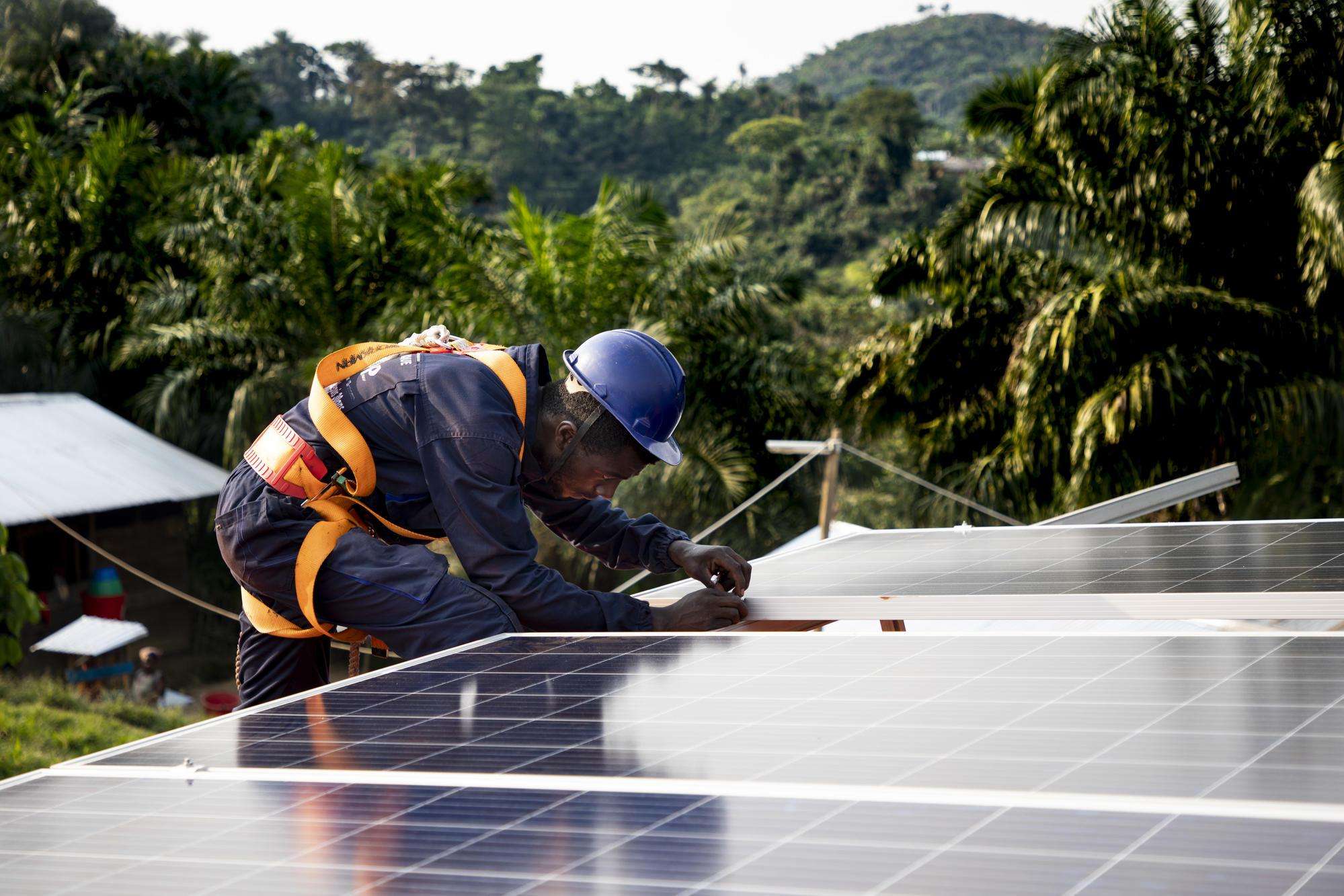In remote parts of countries like Democratic Republic of Congo (DRC), where patients often have to walk long distances to get to a hospital, many health centers struggle with a very basic issue—a lack of access to electricity. Doctors Without Borders/Médecins Sans Frontières (MSF) teams have been coping with this logistical challenge for decades, usually relying on diesel generators. But in DRC´s South Kivu province, MSF teams are finding a cheaper, more effective, and sustainable solution through solar power.
In Kigulube, South Kivu, where villages are scattered across the hills, people get around by motorcycle when they can. Otherwise, they have to walk, often for hours. People in Kigulube also suffer from the fighting between armed groups in the area, making movement from one place to another even more difficult.
“Kigulube hospital is in the heart of a jungle, surrounded by bad roads and paths full of stones,” says Miguel Balbastre, an energy specialist with MSF. “People have a hard time getting to any health care post.” In a case of emergencies, it can be very difficult for them to reach the nearest city with a fully equipped hospital.
“The key areas for saving lives in a hospital are the operating room and the intensive care unit, and these require a continuous and reliable power supply,” says MSF’s medical coordinator in DRC, Chiara Domenichini.
Although generators are the most common option when it comes to providing electrical energy in remote areas, they pose a lot of challenges—one is the enormous difficulty of transporting fuel to places that are not always accessible by Land Cruisers or trucks. Transporting diesel by motorcycle or by air is extremely costly and has many logistical difficulties.
Although solar energy has been around for decades, until now, existing power systems and batteries made it unviable in terms of price, capacity, and lifespan for uses such as powering a remote hospital in the hills of South Kivu. Batteries that could have been transported and maintained in such a challenging environment did not have enough storage capacity to guarantee the operation of complex biomedical equipment over long periods.
The availability of new technologies has changed this. “We are using the latest generation lithium batteries that have not even been commercialized on a large scale,” says Balbastre, who is part of the team providing Kigulube hospital with solar power.
Before installing a photovoltaic system in Kigulube hospital, MSF opened its first solar-powered hospital in South Kivu a year ago, in the Kusisa area in the mountainous Ziralo region.
The installation at each of the two hospitals consists of 100 solar panels and seven batteries capable of accumulating the necessary energy to run the facilities for two full days. Each of these storage units has a lifespan of at least five years, although it may be two or three times longer. This type of assembly also includes a unit capable of controlling both the charge and the release of energy from each of the batteries, which greatly extends their lifespan. In addition, this control unit is able to detect anomalies and can be operated remotely with an internet connection, so technicians can monitor the system from anywhere in the world. Everything is designed to guarantee a continuous and autonomous energy supply, but in the unlikely event of failure, there is a back-up diesel generator ready to take over and maintain the hospital's power supply at all times.
“This solar-powered facility makes a big difference to the treatment we can offer patients in Kigulube hospital,” says Dr. Pacifique Kapimbu, director of the hospital. “Before, we sometimes had to operate in the dark because there was no lighting anywhere in the center. Now, all the rooms will have electricity to ensure adequate medical treatment for patients.”
MSF teams transported all of this equipment from Europe to a remote corner of Africa on a journey that sounds like an adventure story. “The panels traveled by boat along the Suez Canal to Tanzania, where they were unloaded at the port of Dar es Salaam,” says Balbastre. “From there, they crossed Tanzania and Rwanda by truck until they reached the border town of Goma, in DRC. They crossed Lake Kivu, again by boat, to the city of Bukavu, the capital of South Kivu province. And from there, they went by helicopter to the Mulungu area. And finally, around 50 porters carried them to the hospital.”
The transport and installation of such a system requires a large initial investment. However, taking into account the enormous savings in fuel and in not having to transport fuel by motorcycle or helicopter, the investment is expected to be recouped in just two or three years. After that, the annual cost of running the system is 95 percent less than it would be with generators. Even when MSF may need to redirect its resources to other emergencies, the tens of thousands of inhabitants of Kusisa and Kigulube can continue to have functioning solar-powered hospitals. As the medical coordinator explains, “When MSF is gone, they will not need extra money and will not have the usual difficulties of getting the generators to work…. We will ensure that all the equipment we leave can continue to function and do the work that is needed.”




